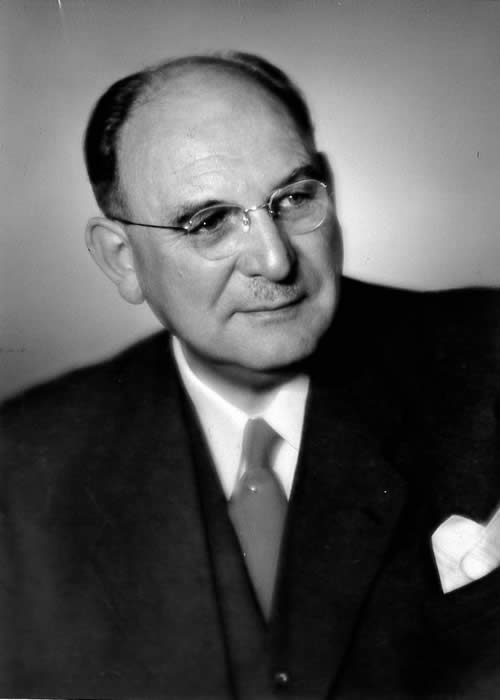
“Man is not on this earth for pleasure, but rather to advocate for others and bring them joy!”
Hans Neuffer
After studying medicine at the Universities of Tübingen, Heidelberg and Kiel, Hans Neuffer served as an auxiliary and battalion physician in World War I. After the war, he worked as a junior doctor at the Surgical Clinic in Tübingen before taking a position as a senior missionary physician in a hospital in China in 1921. After returning from China in 1928, he was appointed police surgeon to the Interior Ministry of Württemberg and to the president in Stuttgart, where he established, among other things, a 30-bed infirmary with a modern operating room. After he resigned his position as police surgeon in 1936 in an act of conscientious objection, he went into private practice as a statutory health insurance accredited physician in Degerloch, where he worked as a general practitioner alongside his other functions until 1963.
As the second president of the German Medical Association (which, at the time, was still the Joint Association of the West German State Chambers of Physicians), he defined the professional policy of the medical profession both during his tenure from 1949 to 1959 and beyond. The achievements of his term in office include the creation of a new professional code, the introduction of the medical specialty system in all the State Chambers of Physicians and a modernised physician fee schedule for privately reimbursed medical services, as well as the legal manifestation of freedom of contract for statutory health insurance accredited physicians and the resulting self-employed status of independent physicians.
Hans Neuffer was granted the Knight Commander’s Cross of the Federal Republic of Germany, the Red Cross Gold Medal and the Paracelsus Medal, the highest honour of the German medical profession, among other awards.
